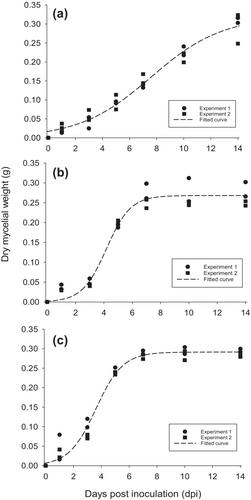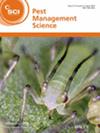Co-inoculation timing affects the interspecific interactions between phoma stem canker pathogens Leptosphaeria maculans and Leptosphaeria biglobosa
Abstract
BACKGROUND
Phoma stem canker is an economically important disease of oilseed rape, caused by two co-existing fungal pathogen species, Leptosphaeria maculans (Plenodomus lingam) and Leptosphaeria biglobosa (Plenodomus biglobosus). Leptosphaeria maculans produces a phytotoxin called sirodesmin PL. Our previous work showed that L. biglobosa has an antagonistic effect on the production of sirodesmin PL if it is simultaneously co-inoculated with L. maculans. However, the effects of sequential co-inoculation on interspecific interactions between the two pathogens are not understood.
RESULTS
The interactions between L. maculans and L. biglobosa were investigated in liquid culture by inoculation with L. maculans first, followed by L. biglobosa sequentially at 1, 3, 5 or 7 days later and vice versa; the controls were inoculated with L. maculans only, L. biglobosa only, or L. maculans and L. biglobosa simultaneously. The results showed that L. biglobosa inhibited the growth of L. maculans, the production of both sirodesmin PL and its precursors if L. biglobosa was inoculated before, or simultaneously with, L. maculans. However, the antagonistic effects of L. biglobosa were lost if it was co-inoculated 5 or 7 days after L. maculans.
CONCLUSION
For the first time, the results of this study provided evidence that the timing when L. maculans and L. biglobosa meet significantly influences the outcome of the interspecific competition between them. Leptosphaeria biglobosa can inhibit the production of sirodesmin PL and the growth of L. maculans if it is inoculated before L. maculans or less than 3 days after L. maculans in liquid culture. There is a need to further investigate the timing of co-inoculation on interactions between L. maculans and L. biglobosa in their host plants for improving the control of phoma stem canker. © 2023 The Authors. Pest Management Science published by John Wiley & Sons Ltd on behalf of Society of Chemical Industry.


 求助内容:
求助内容: 应助结果提醒方式:
应助结果提醒方式:


